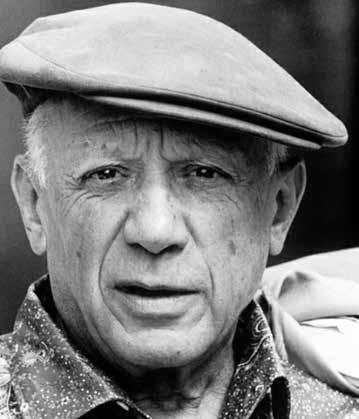
3 minute read
INTERVIEW Pleasure and power with artist Emma Grima
from Artpaper. #19
by Artpaper
Interview /Exhibition/ Malta
September - October 2022
Advertisement
MALTA
SAM VASSALLO
Start a Revolution from your bed
Pleasure is power. It’s therefore no surprise that it’s been weaponized into a tool of social shame and oppression. It’s a phenomenon that is not exclusive but definitely visible in Malta’s conservative rooting. Fresh out of art school, Maltese visual artist and activist Emma Grima explores the the power of pleasure in a thought-provoking body of work called The Vulva Monologues. Artpaper’s editor Sam Vassallo caught up with the artist to speak about the project and her career.

Sam: You’ve just graduated in Photography from the Royal Academy of Art in the Hague. Congratulations! How are you feeling about it?
Emma: I’m very eager to start my career and transition from the art student bubble into the art scene. So far, I’ve been focused on my studies and now I’m ready to build up my network, collaborate and see how I can make my work travel and move around for more people to see. It’s a constant learning experience - but it’s super exciting.
Sam: Your work has a distinct edge. It’s deeply rooted in social issues by tackling the taboo. How do you find the starting point for your projects?
Emma: It always begins with my roots and experience as a Maltese woman. I start a project with a question that I find hard to answer, often due to the intricacies of the island’s culture and my upbringing there. Moving to the Netherlands, which is such a free, outspoken country, has forced me to look

Sam: It definitely turned a lot of heads for locals and even foreigners who might’ve not known about Malta’s ban. What about the Vulva Monologues?
Emma: For the Vulva Monologues, it was about a desire to learn about the power of pleasure. I was going through a breakup, beginning a new relationship and having a moment in covid to be alone and explore my own sexuality, which led to the groundwork for my final multi-media university project.
Sam: What does the work consist of?
Emma: It’s based on connections I made with seven women, where we spoke intimately about our thoughts on pleasure, our own experiences with masturbation, our rituals and routines. It all came together in a visual podcast, photographs, film, book and performative piece. The beauty of it is that the work keeps evolving.
Sam: How was the reception of it?
Emma: I was very grateful - there were 300 other students exhibiting but people really engaged with the space. Some offered their own personal stories, the differences between generations when it comes to owning pleasure and the evolution stigmas and taboos. I feel like it did what it needed to - to spark conversation and help ease stigmas through dialogue.
Sam: What lessons did you learn from the Vulva Monologues?
Emma: I learnt about the importance of being consciously aware of your sexual journey. I learnt how powerful pleasure is: to gain confidence in yourself and your body, to be communicative with others and yourself, about the power of consent and boundaries. It’s grounding and liberating both personally and politically.
Sam: Agreed. So what’s next for Emma Grima?
Emma: I want to bring the work to Malta for the conversation to reach my home and, of course, to keep trying to answer these difficult questions through my art.
around, ask questions and think. I find myself drawn to the interplay between the personal and the political.
Sam: What role does the personal and political play in your work?
Emma: I’m not an artist that creates personal work, but I use the personal as a driving force. It’s the fire that keeps me going, wanting to know more, diving into research and connecting with people. That’s when the project turns and becomes about them.
In Unspoken Truths (2020) for example, I explored what it means to have autonomy over your body, particularly as women in a country with a blanket ban on abortion, a highly taboo subject. I took portraits of 44 individuals and captured women with their fists in the air and hangers in the other, which is the symbol for underground, unsafe abortion. It was a collaboration with two great NGOs, Women’s Rights Foundation and Young Progressive Beings, and was displayed on billboards outside the capital Valletta.












